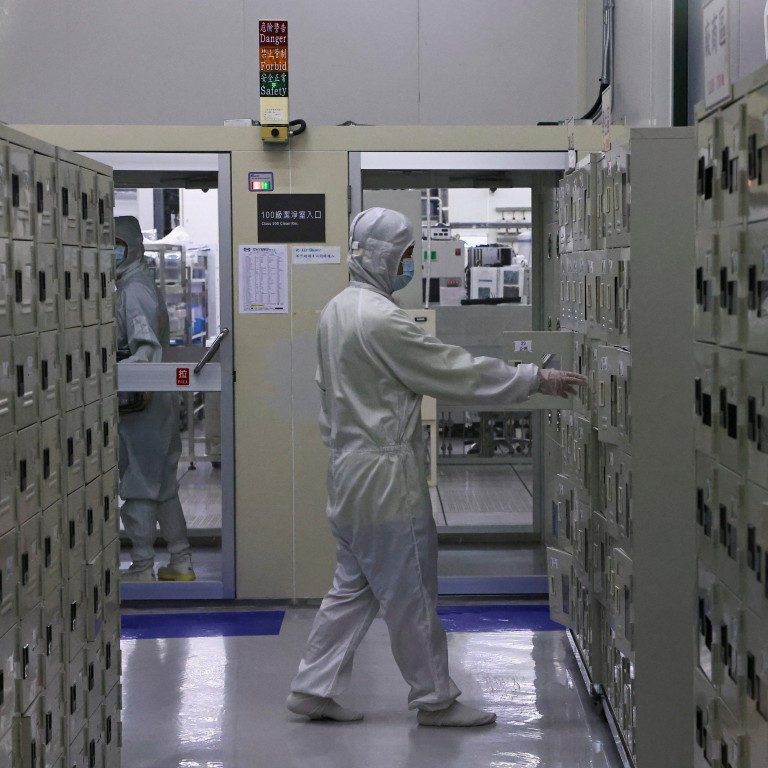
Taiwan’s export growth suddenly sputters, but AI shipments offer ‘cushion’ amid subdued electronics market
- Taiwan exports grew by a mere 1.3 per cent in February, although it still represented a fourth straight month of gains after having slipped for most of 2023
- Exports fell due to the timing of the Lunar New Year last month, and analysts say Taiwan is still poised to post overall export growth this year
The value of exports from global tech powerhouse Taiwan grew by a mere 1.3 per cent in February, year on year – weaker than in the prior three months, with a big drop-off from January’s 18.1 per cent rise.
But analysts pointed to the temporary effects of a long holiday and said global demand for artificial intelligence-driven (AI) gear looks to keep exporters busy for most of 2024.
The value of overseas shipments from Taiwan totalled US$31.43 billion in February, the Ministry of Finance said on Friday.
Last month’s exports reflected “the timing of the Lunar New Year”, Dutch financial group ING said on Friday, as Taiwan took a week off for the festivities.
Overall, analysts generally say Taiwan is poised to see its exports grow in 2024. The island, with its vibrant and long-cemented tech sector, thrives on shipments of phones, PCs and components such as semiconductors.
Taiwan will capitalise this year on global demand for electronics made for AI computations, according to analysts.
“AI continues to be the driving force, and it’s helping to cushion an otherwise very subdued market for other electronics,” said Tony Phoo, an economist with Standard Chartered Bank in Taipei, adding that another positive for Taiwan’s exports is that it is “not seeing smartphones and PCs deteriorating”.
The value of exports of electronic components declined by 10.4 per cent last month, year on year, to US$11.59 billion, while shipments of information, communications and audiovisual products rose 104.6 per cent by value, to US$85.08 billion.
We think the infusion of AI will start a [device] replacement cycle that’s long overdue
Taiwan already produces around 60 per cent of the world’s computer chips, including the most advanced, which are installed in personal computers, phones, servers and vehicles. Chips also run neural processing units – the brains behind a device’s AI computations.
Phones and PCs with “specific AI models” are expected to become more popular from the end of 2024 into 2025, said Mario Morales, a US-based group vice-president with tech market research firm IDC.
“We think the infusion of AI will start a [device] replacement cycle that’s long overdue,” Morales said during a webinar on Thursday.
The latest cycle, in 2020, helped answered demand for phones and laptops to work or study remotely during the pandemic.
Mainland China and Hong Kong, combined, were Taiwan’s largest export market in February, taking goods worth US$9.17 billion after a 16.7 per cent year-on-year tumble. Importers in mainland China often process Taiwanese components for re-export.
Taiwan’s hi-tech export orders resume rise in January as world gears up for AI
The value of Taiwan’s exports to the United States expanded by 50.3 per cent last month, year on year, to US$7.11 billion, while Southeast Asia took 16 per cent more, finishing February at US$6.57 billion.
By volume, smartphone shipments in the top five markets in Southeast Asia had advanced by a “significant” 20 per cent to 7.26 million units in January, market research firm Canalys said on Tuesday.
Heavyweight Taiwanese contract chipmaker United Microelectronics announced this week that its February sales had risen by 3 per cent compared with the same month last year, with total sales of about NT$17.5 billion (US$555 million).
Acer, a Taiwanese PC developer that ranked fourth last year in terms of its global market share, said on Wednesday that its consolidated revenues grew by 9.8 per cent in February, year on year.
Its notebook PC revenue grew by 20.5 per cent, Chromebooks added 55.3 per cent and gaming devices gained 35.7 per cent.

